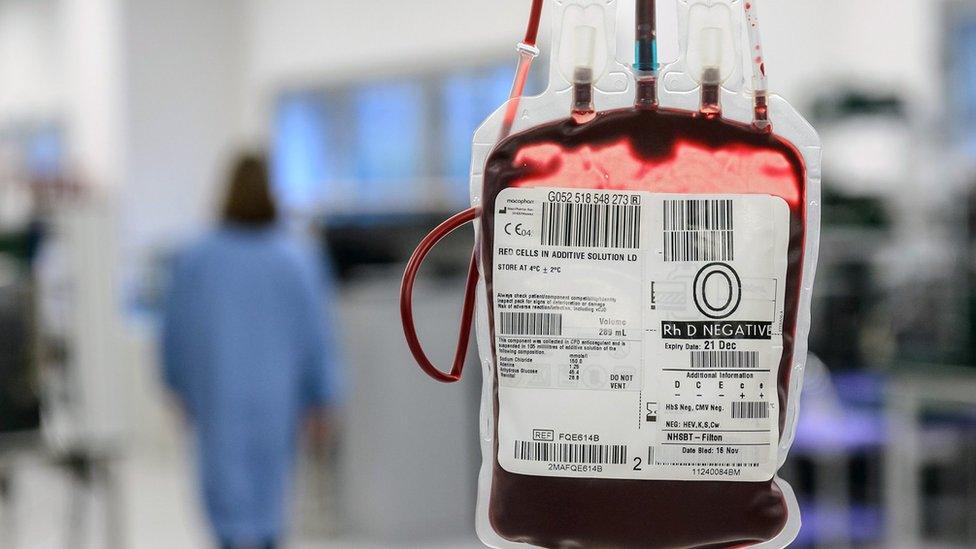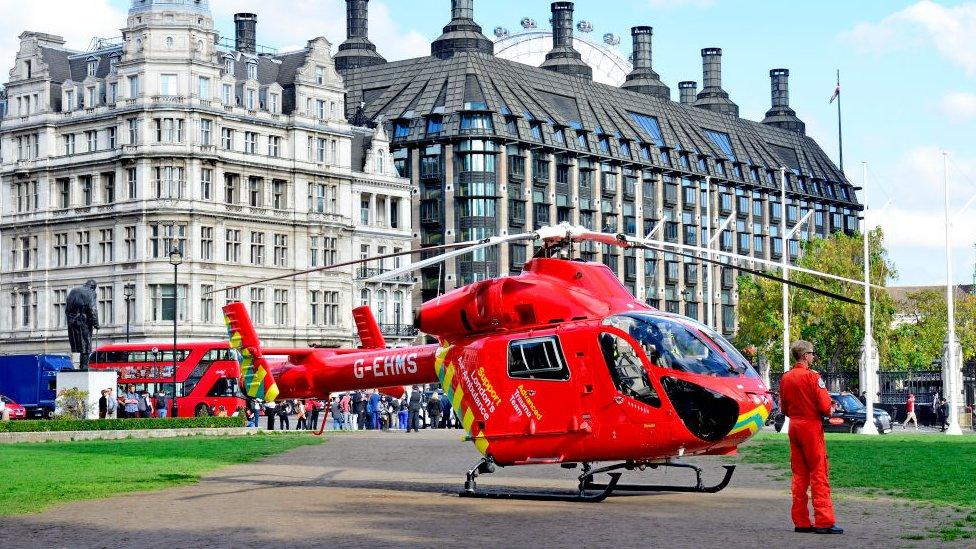London's air ambulance takes part in 'whole blood transfusion' trial
- Published

Almost 850 patients will be recruited for the trial over the next two years - with half receiving usual care, and the other half receiving whole blood transfusions
London's air ambulance will be the first NHS service to take part in a new "whole blood transfusion" trial.
The scheme will give some patients transfusions that include platelets, in a bid to improve their chances of survival.
Currently, air ambulance patients and soldiers needing battlefield transfusions can receive plasma and red blood cells, but not platelets.
It is thought including platelets could cut treatment time and help clotting.
Platelets are not currently used in transfusions on air ambulances due to the difficulty of storing that particular blood component.
The trial was developed after evidence from Army medics working in battlefields in Afghanistan suggested this type of transfusion could improve survival rates among patients who suffered major trauma.
Beginning on Thursday, the NHS will test the effectiveness of the transfusions across 10 UK air ambulance services, with the capital's air ambulance being the first to begin using them.
The services will assess how whole blood transfusion helps in treating patients who have suffered serious accident or injury, compared to standard care.

Prof Jason Smith from the Ministry of Defence said: "This study will hopefully give us the answer as to whether whole blood is better than our current standard care"
The NHS Blood and Transplant (NHSBT) service said 848 patients would be recruited for the trial over the next two years - with half receiving usual care, and the other half receiving whole blood transfusions which will come from donors with O negative blood, the universal blood type.
It added that if the trial was a success, it would change pre-hospital trauma transfusions and battlefield care.
Dr Laura Green, co-chief investigator for the trial, said: "We hope that [the trial] will show there are logistical and procedural benefits in giving a blood transfusion of all of the components in a single bag; and ultimately improved outcomes for patients.
"We are also incredibly grateful to our O Rh negative donors, whose universal donor blood is critical in trauma transfusion, including in this trial."
The pilot has been funded by by NHSBT, the air ambulance charities and the Ministry of Defence.
Prof Jason Smith, co-chief investigator from the Ministry of Defence, said: "We have known that blood transfusions save lives in patients with life-threatening haemorrhage for over 100 years, but the exact nature and optimal timing of those transfusions is still not known.
"This study will hopefully give us the answer as to whether whole blood is better than our current standard care in terms of clinical and cost effectiveness."

Follow BBC London on Facebook, external, Twitter , externaland Instagram, external. Send your story ideas to hellobbclondon@bbc.co.uk